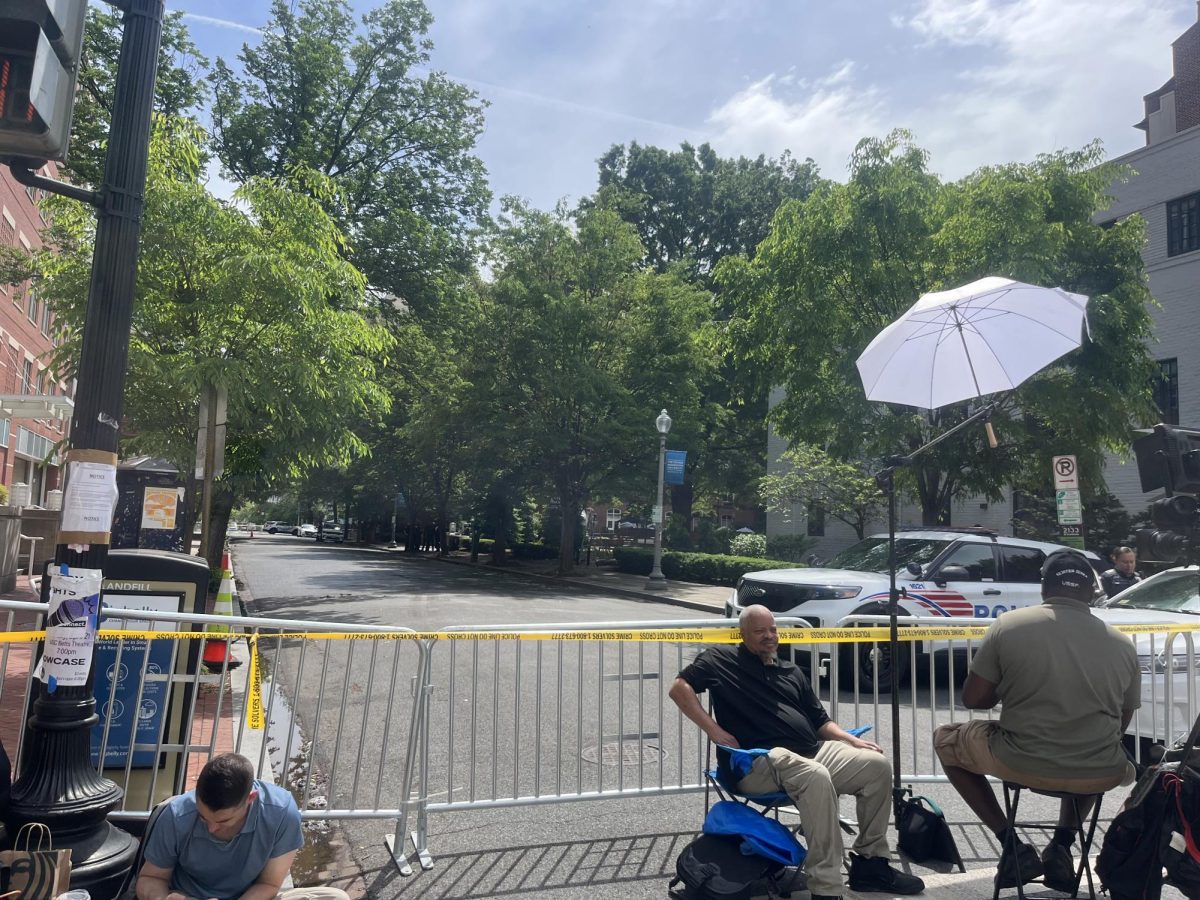Students are voicing accessibility concerns following an email to community members stating that professors will not be required to provide virtual attendance options for class.
Rohan Williamson, vice provost for education, sent an email to Georgetown University students Sept. 30 outlining the university’s commitment to an in-person semester, emphasizing that students should not expect professors to provide opportunities for asynchronous or synchronous virtual participation. As COVID-19 and other viral illnesses spread through campus, students have posed concerns about health and safety, especially for immunocompromised people.

According to Andrew Bialek (COL ’22), president of the Georgetown Disability Alliance (GDA), not all students who feel uncomfortable attending classes in person have a registered disability status with the university — which would provide them with alternative attendance accomodations — and the process to gain such recognition can be lengthy.
Before this email, students may have felt more comfortable requesting virtual options without formal accommodations from the university, but now may experience difficulty accessing alternatives to attending class in person, according to Bialek.
“Previously, people had the opportunity through speaking to their professors to be able to attend class either virtually or for whatever reason. And the onus now is on the individual student to attend class,” Bialek said in a Zoom interview with The Hoya.
In order to receive an accommodation for any disability, students must submit documentation of their disability written by a qualified professional to the Academic Resource Center. After reviewing the documentation, the Academic Resource Center decides upon the appropriate accommodation.
Students who are concerned about risks to their health but don’t have formally approved reasons to miss class are now forced to weigh their wellbeing against the consequences of not attending in person, according to Dominic DeRamo (COL ’23).
“As an immunocompromised student, there have been numerous unapproved situations in which I would have been more comfortable attending class virtually,” DeRamo wrote in an email to The Hoya. “In light of the Provost’s email on September 30th, I am even more hesitant to have these conversations with my professors because I know that I would be asking for something that the university has explicitly discouraged.”
In addition to continued COVID-19 concerns, Georgetown has recently faced a norovirus outbreak, with over 145 community members reporting symptoms consistent with the highly contagious gastrointestinal illness. The main campus also experienced an outbreak of Influenza A in mid-September, with 65 confirmed cases as of Sept. 16.
DeRamo says because in-person attendance policies are up to professors’ discretion, he is grateful for professors who are taking steps to make their classrooms more flexible.
“In my experience, most professors are offering a Zoom option for students that test positive for COVID,” DeRamo wrote. “Besides that, there has been a lot of variety in professors’ approaches to flexible attendance policies.”
As was the typical policy before the COVID-19 pandemic, students now are expected to contact their deans and professors if feeling ill, according to a university spokesperson.
“To this end, faculty members have been encouraged to accommodate students by making course materials available to students missing classes due to COVID-19-related isolation or quarantine, or other symptoms and illnesses, based upon course content and pedagogy,” a university spokesperson wrote in an email to The Hoya. “Faculty are also encouraged to use lecture capture software if appropriate for their courses.”
The disability accommodations process is very individualistic and requires students to work with outside organizations to receive this approval, according to Bialek.
“It’s not automatically granted in most situations, meaning it would both take time but it would also take some additional resource beyond the university itself to to receive said accommodation,” Bialek said.
According to DeRamo, students and faculty should facilitate open conversations about accessibility following the provost’s email.
“I know that professors and administrators are willing to listen to students’ concerns, but we need to have conversations about how we can act upon them,” DeRamo wrote. “The Provost’s email on September 30th seemingly discourages conversations about flexibility and accessibility in a time when students most need them.”




















